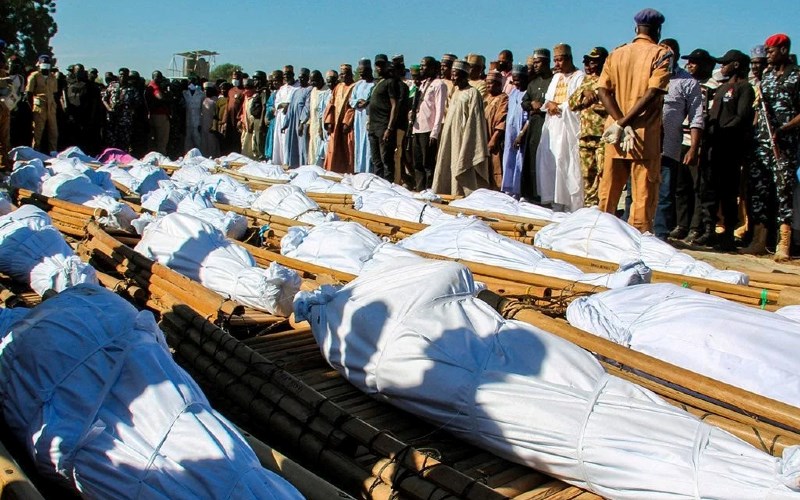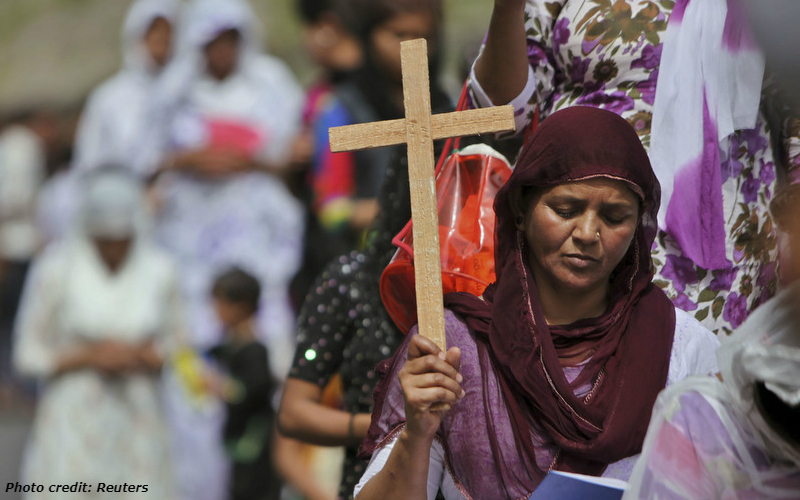According to Open Doors USA, in Nigeria, a Christian is killed for their faith every two hours on average, which adds up to nearly 13 Christians a day and 372 Christians a month.
In a report published last month by Jihad Analytics, Nigeria became the country with the highest number of Islamic State attacks. “For the first time in the history of the jihadi group,” the report states, “Iraq is no longer the country where IS claims the highest number of operations: the group Islamic State West Africa Province (ISWAP) is now more active in Nigeria.”
In fact, attacks by the terrorist organization have surpassed those in Iraq, Syria, and other war-torn Middle East countries.
Western media largely ignores the deadly incidents of terrorism in Nigeria, journalist Douglas Burton tells American Family News, citing several reasons. “First,” he says, “the assumption of many observers is that Nigeria's crisis is not consequential to Western concerns, [as] it is 5,000 miles away and terrorists there have not attacked U.S bases or threatened the United States.”
Secondly, says the former U.S. State Department official in Kirkuk, Iraq, “the percentage of Nigerian expats in the U.S. is far less than from other countries.”
Third, Burton contends, Nigerian immigrants to the United States are failing to “raise their voices in protest of the atrocities back home.”
Even the members of Nigerian megachurches he has visited in the United States are failing to protest and lobby Congress to bring aid to the Nigerian government.
The Nigerian government, he argues, has been complicit with the persecution of its Christian citizens.
“Fourth,” he states, “the Nigerian media itself doesn't do an adequate job of breaking down the complex set of factors behind the conflict with honesty.”
Nigeria a 'prize' for competing groups
Burton considers Nigeria a “welcoming environment” for radical Islam, where the Islamic presence in its northern cities goes back 800 years.
Not only is Nigeria the most populous county in Africa, but Burton points out that it is also the wealthiest.
“It is a prize for a globalist jihadist organization to acquire,” he suggests.
And there are several currently bidding for the West African country. One of the prominent “radical” insurgencies, he says, is ISIS. Second is Boko Haram, which Burton clarifies was “not created by ISIS, but preceded it.”
ISIS refused Boko Haram as its affiliate and chose as its representative the faction headed by Barnawi, who established the Islamic State of West Africa Province.
ISWAP, for example, is a “globalist jihadist group with ties to affiliated organizations in other African countries and the Middle East,” according to Burton. “There is also an Al-Qaeda-affiliated group operating in Nigeria's Kaduna State called Ansaru, but it is chiefly a criminal gang operating kidnapping for ransom.”
Boko Haram, on the other hand, is not a globalist jihad group, he explains.
“The group has been in a state of conflict with ISWAP for several years,” he added.
A year ago, Burton points out, Abubaker Shekau, the longtime head of Boko Haram, committed suicide in a meeting with commanders of ISWAP who were negotiating the surrender of his fighters.
“Since then,” Burton says, “some of his fighters fled for their lives to Northwestern territories; some surrendered to Nigerian army and repented; and some continued to operate as a group hunted both by ISWAP and by the Nigerian Army.”







